Ineffectual Spanish-Zionist lobby group ACOM
ACOM describes itself as 'an independent organization that aims to reinforce the political relationship between Spain and Israel by working with governments, political parties, the media, and civil society'.
But beyond ACOM's benign veneer lies a rather different and sinister reality.
The former Social Rights minister in Spain, Ione Belarra, is one of the few European politicians who have been vocal from the outset in criticizing Israel's genocidal campaign in Gaza.
While she was still a minister in the Spanish government, she took to the streets in the aftermath of the seventh of October, denouncing Israel's planned genocide in Gaza and calling for sanctions as well as a ban on arms sales to the Zionist regime.
Belarra was quickly hailed for her heroism, but she also came under attack from Zionist lobby groups in Spain.
ACOM, which stands for Action and Communication on the Middle East, is an ultra right-wing Islamophobic Israel lobby group, which engages in Lawfare and defamation tactics against supporters of Palestine.
The lobby group reported Belarra to the Spanish prosecutor's office for incitement to hatred, claiming that she had abused her position and had exceeded her right to freedom of expression.
ACOM has a long history of trying to shut down free speech on Israel. In response to a boycott campaign which calls for 'apartheid free spaces', which has seen shops and local authorities in Spain, boycotting the Zionist regime.
ACOM has taken dozens of legal cases to try to stop the boycott. One of their cases even reached the Spanish Supreme Court, which declared the boycott discriminatory.
While Belarra's views are popular in Spain, she lost her job in the Spanish government following a reshuffle in late November 2023. Although it's likely that had dismissal was influenced by other factors.
The Spanish Prime Minister, Pedro Sanchez, declared last November that Spain would soon recognize a Palestinian state. Sanchez also expressed his concerns regarding the number of Palestinian children being killed and said that he seriously doubted Israel was complying with international humanitarian law.
The Israel lobby's influence in Spain has been less powerful than in many European countries.
Polling indicates that support for Palestine is strong in Spain. Early last year, for example, the mayor of Barcelona, Ada Colau, wrote to Benjamin Netanyahu to announce that the city was suspending relations with Israel due to its systematic violation of Palestinian human rights.
Even the European Union Foreign Affairs Chief Josep Borrell, who had a long career in Spanish politics, and who once volunteered on an Israeli kibbutz, recently criticized Israel's allies for continuing to supply the Zionist regime with weapons.
Despite this broader support for Palestine in Spain, Belarra has been unique in the strength of her criticism of Israel, and has been at the forefront of highlighting the genocidal character of the Zionist onslaught on Gaza.
Ione Belarra has been an outspoken advocate for Palestine, hasn't she? Could you briefly explain how she has been received by the Spanish public and indeed the political establishment for that matter?
Yes, the reception she's had by the Spanish political establishment has not been especially warm, although that's probably to do with the relationship between the political parties in Spain, which is quite a cantankerous relationship in general, but on the substance of the issue, she's not really speaking too far out of turn because there's a lot of consensus for Palestine amongst ordinary Spanish people.
There was a poll done by YouGov at the end of 2023 with found that essentially, Spain was the most pro-Palestinian country in Western Europe in terms of public opinion.
So this is a country where you pay a relatively low political price for speaking out for Palestine, I would say.
Timothy Appleton, PhD
What would you say distinguishes Spain from other European countries, particularly in relation to public opinion and indeed to government policy?
So as we just heard there, yes, I mean, public opinion is very strongly in favor of Palestinians and critical of Zionism. But that's been the case in many other foreign policy issues. I remember when I first went to Spain, there was a referendum about whether they should leave NATO, and, of course, that kind of anti-militarism has been very strong, anti-war movement in relation to Iraq was very strong.
And of course, we've seen cities like Barcelona and others declare that they are going to boycott Israel. So there's been a strong pro-Palestinian sentiment has been for some considerable time.
And of course, Spain is one of the only countries, of only two countries in Europe, which has actually decided to stop sending arms to Israel, Italy, of course, is the other one.
Other countries, the Netherlands and Belgium, have done little things like stopped F-35 parts going or there's a part of the Netherlands which says there'll be no relations (with Israel), whereas countries like Germany continue to supply significant proportions of the ordinance and the weaponry which is being used to kill children every day in Gaza.
So there's a sense really that that Southern Europe is more progressive than northern Europe, and in particular Spain and public opinion they're very strongly in favor of the Palestinians.
And that's why Bellara is a popular figure there has been perhaps the most radical of all European politicians, you know, even more radical than some politicians in places like Ireland, which have been a bit critical, and that's part of the explanation.
David Miller, Academic
Why do you think Ione Belarra was dismissed from her ministerial position in the Spanish government, then?
Well, it's not exactly related to her position on Palestine but it's not unrelated either.
She's able to speak out so frankly and so tersely now on Palestine, let's say, representing more of a humane position, perhaps precisely because she's distancing herself from the rest of the factions in the left coalition government, which they've actually exited now in the parliamentary configuration, as well as obviously her losing her job in the ministry.
But the rest of the Spanish left sort of talks a good game on Palestine, but it seems slightly slow when it comes to taking action.
I mean, they said they were going to, as was mentioned there, they said that they were going to stop arms sales immediately after the current phase of the crisis began in October.
But it just turned out that in November they were still sending arms to Israel. They said that that was an accident. But you can you can interpret that any way you like, really.
Timothy Appleton, PhD
Well, David, I mean, you know, in view of Spain's criticism of the Zionist regime, I mean, how do you see Spain's relationship with Israel actually evolving?
Well, I mean, you've got to remember that that under the fascist regime of Francisco Franco, up until 1978, that there was no relationship with Israel.
And then after the fall of Franco and the introduction of democracy in Spain, what happened was, there was a long campaign by Israel to try and create relations. Eventually in 1984 relations were established. .. And there was a kind of an increase in their relationships.
But then, of course, more recently, we've seen the cooling of the relationships that we have. The Israelis have withdrawn their ambassador from Spain, there are still diplomatic relations, they haven't totally broken off diplomatic relations, but they're much cooler now.
And, as this progresses I imagine, they will get even cooler.
But perhaps we'll look forward to Spain being the first country in Europe to totally break off diplomatic relations with Israel, and not before time.
David Miller, Academic
What's the broader political landscape like in Spain regarding support for Palestine and what actions, if any, have been taken by other Spanish politicians and officials?
Well, we had a good test of that this week because Podemos, the party that Ione Belarra leads, brought a bill to Parliament proposing to break off relations with Israel, and to completely stop arms sales, you know, without exception, and all of the left parties voted for it in fact, so you know, they are kind of pinning their colours to the mast, as it were.
It didn't pass because the right wing parties in the Spanish parliament voted against it.
The PP, which is their equivalent of the Conservative Party, and Vox, which is a sort of extreme right run party, cynically voted against it, but even they have been forced to kind of speak out in favor of Israeli restraint.
So that shows that even the Spanish right is probably an outlier within the right wing political movements in the rest of the continent.
There's [sic] historical reasons for that, as was pointed out, and also I think, perhaps Spain's sort of liminal position within Europe means that traditionally it's tried to maintain reasonable diplomatic relations with various other parts of the world, the Arab world, almost as a diplomatic imperative, really.
So I think that's been a factor here as well.
Timothy Appleton, PhD
What shape is Spain's diplomatic relations with Israel in and how would you say it's changed under Prime Minister Sanchez?
Well, I think it's important to endorse that point that's just been made about the liminal position of Spain that is kind of in between worlds in some kind of sense, because if you remember what happened with the Americans attempts to create this Yemeni Task Force or operation protect as it was called and what happened with that was that the US Navy, first of all said that they didn't have enough ships to do this.
But then Spain and France and Italy, all withdrew from that and you ended up with just America and the UK and the Seychelles, bombing Yemen and the other countries withdrawing.
So, it's part of the same kind of process now. With the Sanchez government the movement has been very much against Israel and away from friendly relationships with Israel.
As I said, they continue to have relationships, but the tendency is all the other way and, you know, really would be a great breakthrough for a country like Spain to finally break the relations.
David Miller, Academic
Support for Palestine among the Spanish public remains comparatively stronger than in other major European nations.
Spain only established diplomatic relations with Israel in 1986 after facing a concerted diplomatic campaign by Israel's Ministry of Foreign Affairs. The process was overseen by stalwarts of the Spanish Socialist Workers. Party, which is the major party in Spain's current coalition government and is one of Spain's two largest parties. However, under the leadership of Prime Minister Pedro Sanchez, Spain now has troubled diplomatic relations with Israel over its genocidal campaign in Gaza.
Sanchez has been supported by the king of Spain, Philippe the sixth. King Philippe is normally considered to be a conservative figure. However, he has called for a permanent ceasefire in Gaza and for maximum humanitarian access in addition to supporting Sanchez in his desire for Spain to recognize a Palestinian state.
This is in stark contrast to other major European powers such as Germany and the United Kingdom, which have not only provided diplomatic cover for Israel, but have also been supplying the Zionist regime with weapons.
One of the reasons for Spain's more pro-Palestinian stance is the lack of power of Israel lobby groups in the country. Most of Spain's major pro-Israel organizations are only around three decades old. One such group, the Federation of Jewish communities in Spain, was only established in 1993 and it does not quite enjoy the same kind of public influence as its British counterpart, the board of Deputies of British Jews, which was established in the 1700s.
Nevertheless, the Israel lobby in Spain has been successful in using lawfare tactics to harass and shut down pro-Palestine activities, taking individual politicians and local authorities to court under Spain's anti-discrimination laws.
One such group, ACOM or Action and Communication in the Middle East, states that its objective is to reinforce relations between Spain and Israel and that one way it does this is through legal action.
ACOM openly incites hatred of Muslims.
On its YouTube channel; it shared a speech by far-right politician, Alberto Cerradas, talking about so-called 'Islamism' and spreading the Zionist mantra about a 'clash of civilizations between East and West'.
The group also spreads Israeli war propaganda; it shared the debunked and baseless claims of ambulances in Gaza being used to transport Hamas fighters and provide a justification for Israel's targeting of medical facilities like the Al Shifa Hospital.
Moreover, ACOM lists as its friends all the notorious Israel lobby groups like the ADL and AIPAC in the United States, as well as in the United Kingdom, which have been at the forefront of efforts to silence criticism of the Zionist war machine.
Whilst Zionist lobby groups in Spain are in the margins, the threat they pose remains active.
ACOM's support for Islamophobic rhetoric is not unique to Spain, is it?
It certainly isn't. I mean, this is why we say that the Zionists are a key part of the spread of Islamophobia in the West, not the only part.
The main part, of course, is the forces of the state, police and intelligence services but the Zionist movement has a specific component of Islamophobia to add.
It was Zionists, of course, who invented the concept of Islamic terrorism, the idea of the Islamist, all these concepts came from Zionist intellectuals and of course, Zionist themselves have pushed Islamophobia through Islamophobic think tanks, for example, in the UK and in the US, and to some extent also, it's the case in Spain through some of the new conservative think tanks that are there.
Now in Spain there is an Islamophobic party, the Vox party ... and this ACOM group is quite close to Vox that's an indication really of the kind of tradition of Islamophobia which flows through the Zionist movement, which we also see in the Spanish Zionist movement.
David Miller, Academic
How significant has King Philippe's support been in advancing a more pro-Palestine stance in Spain?
He is quite a mouthy monarch, isn't he, Philippe VI, from a British perspective, it's quite surprising to see a monarch, a constitutional monarch, calling for the recognition of a state of Palestine.
But I think really, again, that would take me back to the sort of broad consensus in Spain about the necessity of doing things like that. So it's not a particularly controversial thing to say, or, you know, it's not unusual for him to make political comments.
I don't know whether there's also an element of action between the Spanish Crown and, you know, royal families in Arab countries or anything like that.
I mean, Spain's former King Juan Carlos just emigrated to the United Arab Emirates, retired and emigrated. So I don't know whether that's you know, representative of a more personalist strategy in their foreign relations generally, you know, historically.
Timothy Appleton, PhD
What connections are there between ACOM and other pro-Israel groups and lobby groups around the world and what influence do you think they have on global discourse about Israel?
Well, I mean, the Zionists coordinate with each other, they all work together. They coordinate via Tel Aviv, they have common WhatsApp groups to push particular narratives and, as you saw on the film there the ACOM attack, legal attack on the Palestinian Solidarity Organization, which of course is just an iteration in Spain of a strategy which is adopted all through the world, in the US, in the UK, to attack pro Palestine organization.
So yes, there are those kinds of connections. ACOM advertises it on its own website that it's connected to BICOM The British organization which is the main PR agency for Israel in the UK, and of course, to the ADL spy agency in the US to the American Jewish Committee and various other lobby groups.
So it's not a surprise they work together and coordinate directly with the Ministry of Foreign Affairs in Israel. So at a global level, what impact does that have?
Well, it has an impact in the sense that they're all pushing the same messages. They have what they call 'war rooms', where they coordinate these messages. That's the method by which they do this.
These are not individual organizations in Spain or the UK. This is a transnational Zionist movement, as you know.
David Miller, Academic
What techniques are deployed by pro-Israel lobby groups in Spain to manipulate public opinion and policy decisions about Palestine?
Well, they've brought lawsuits against activists for "glorifying terrorism" in public demonstrations in their speeches and public demonstrations.
They threaten to take legal action against public institutions like the University of Grenada for publicly declaring their support for Palestine, their institutional support for Palestine.
They petition against UNRWA, and they petition the Spanish government to prohibit pro-Palestine demonstrations.
So basically it's, as was mentioned before, it's lawfare, and where that doesn't work, It's plain intimidation, really, if you are generous, you'd call it campaigning, but it's very aggressive campaigning to the point of intimidation, really, which I think is all they've got left because they've lost the rest of the argument, you know?
Timothy Appleton, PhD
How does the impact of pro-Israel lobby groups in Spain differ from other European countries?
Well, you can see from what we've been seeing so far, that they're weaker than in other countries.
They haven't captured the key processes of the state like they have in Germany, in the UK, France to some extent.
David Miller, Academic
Are their tactics the same?
Well, the tactics are different in the sense that they're not so embedded with the powerful.
So you see in the Spanish elite’s phrasing of their statements, you know, it's not just Ione Belarra, but it's also the King, and it's the Prime Minister, who are able to make very critical statements about a ceasefire compared to other European leaders.
But they have concentrated more at the local level, they've gone after cities, who have declared boycotts and they've been very successful in some of their legal actions, with the collaboration of judges who are evidently biased towards Israel, but it's at a lower level than in other European countries where Zionism has been able to capture policymaking and key elements of those societies.
David Miller, Academic
Do you think it's likely that Spain will actually recognize a Palestinian state?
Well, I suppose it's a bit like the Samuel Beckett play, 'Waiting for Godot'. You know, one assumes it will happen but one's not sure.
I think of all the European countries if you had to put money on a country to do it, imminently, it would be Spain, but it's always inhibited by its relationship with the EU, Spain is intimidated by the EU and wants to do it at an EU level, I think, rather than just unilaterally.
But if that doesn't work then maybe they'll maybe they'll do it; you never know your luck.
Timothy Appleton, PhD
VIDEO | Indonesian rescuers find debris from missing plane
VIDEO | Protesters rally in Greenland against Trump annexation threat
US ‘fueling tensions’: Iran dismissed claim of planning attacks on American bases
Venezuela has right to build relations with Iran: Interim president
Six Palestinians injured in Israeli settler attacks in West Bank
EU, Mercosur sign international trade deal sending ‘clear signal’ to Trump
VIDEO | Mosque, community center targeted in Tehran arson attacks
VIDEO | Paris protesters call for release of Palestinian abductees


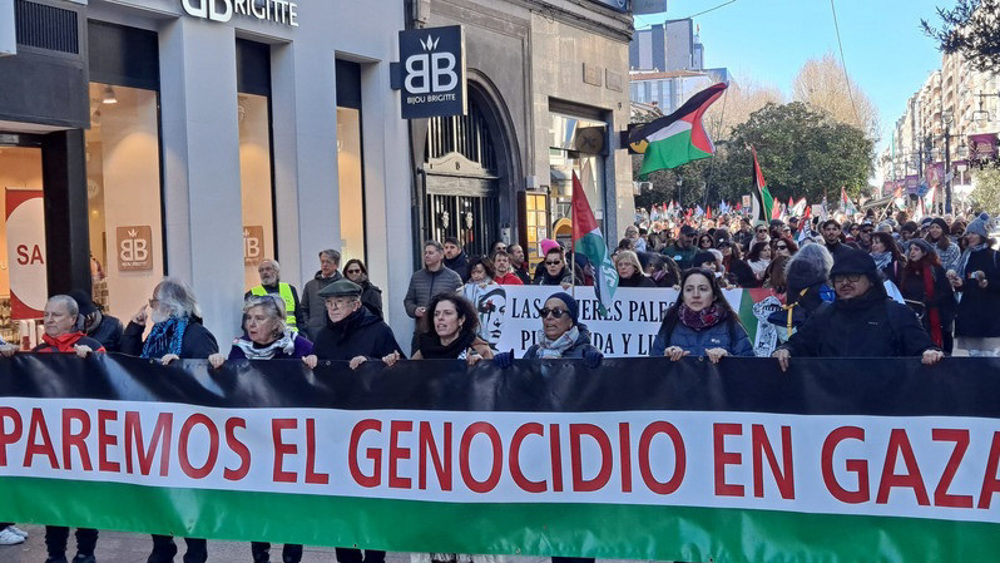
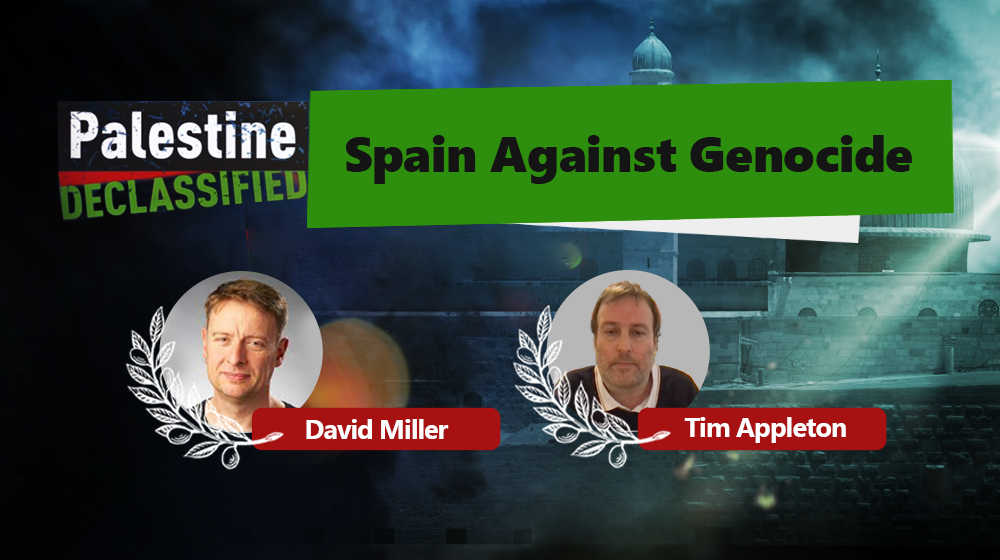
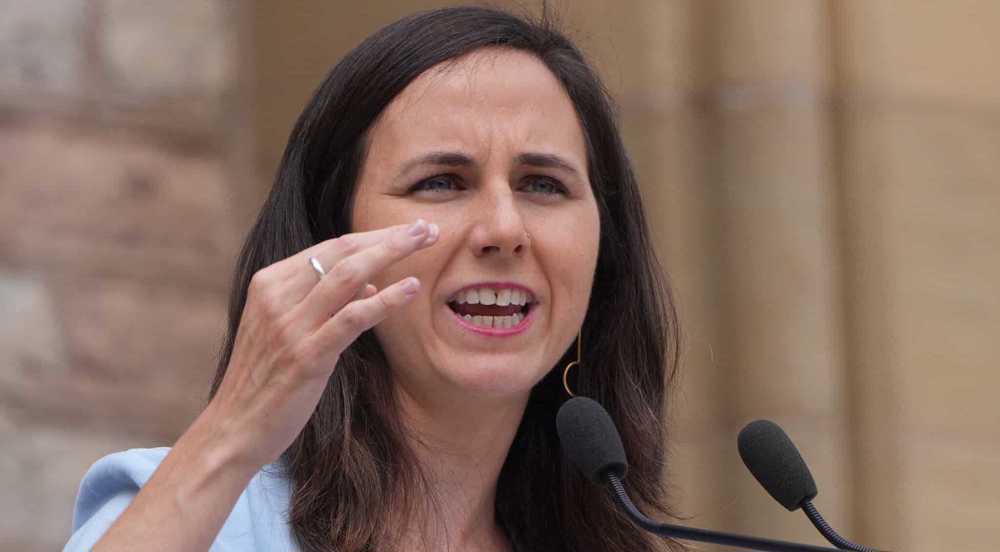
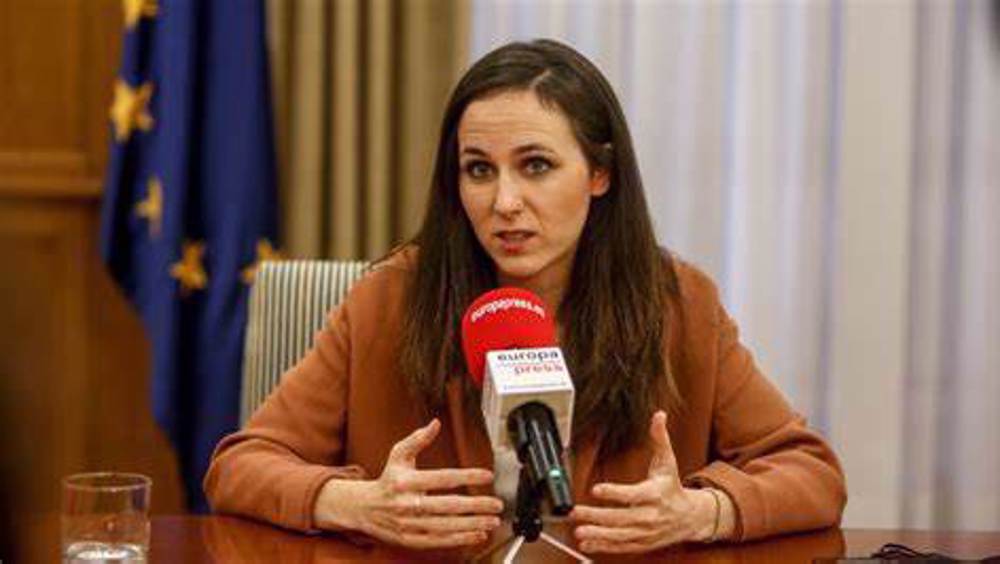


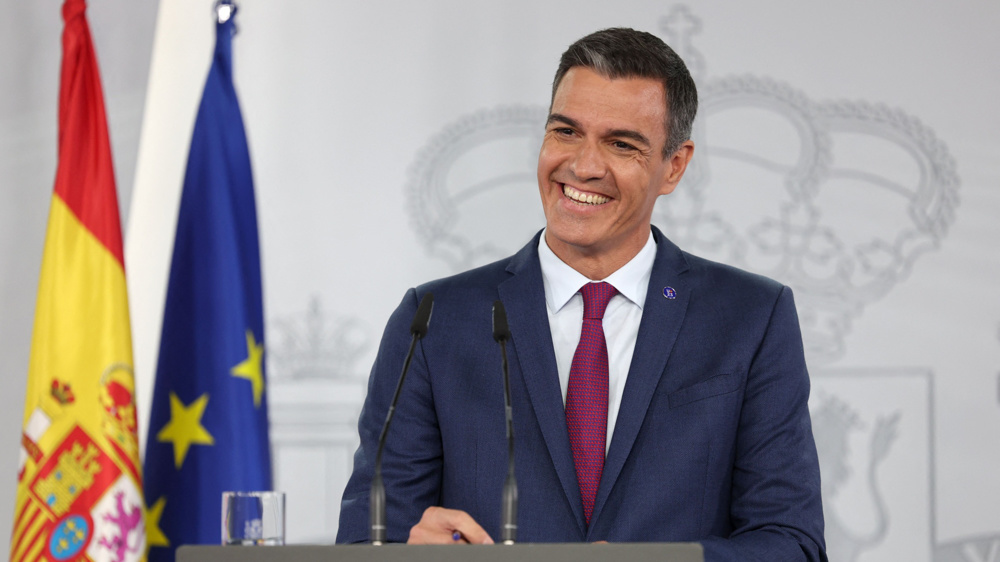



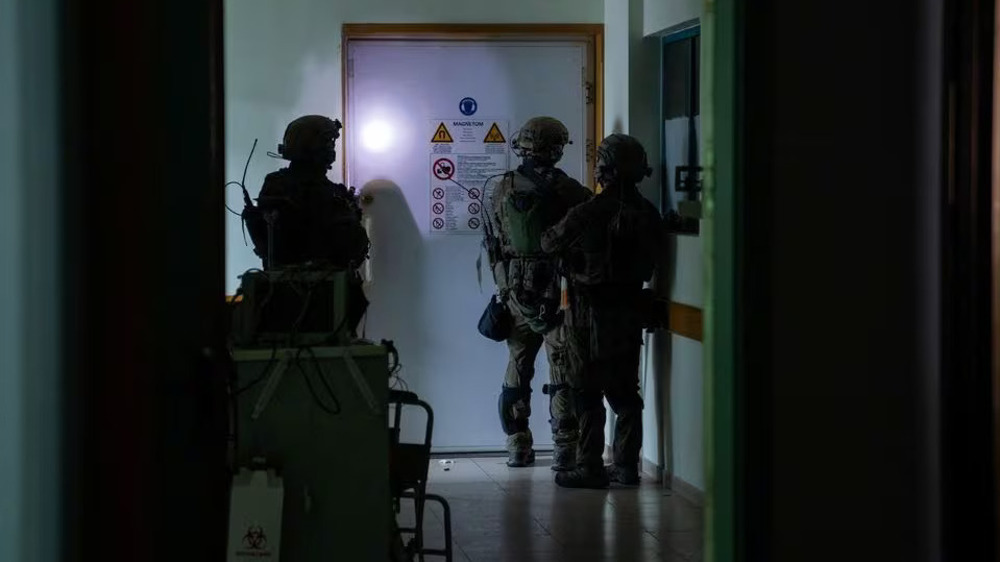



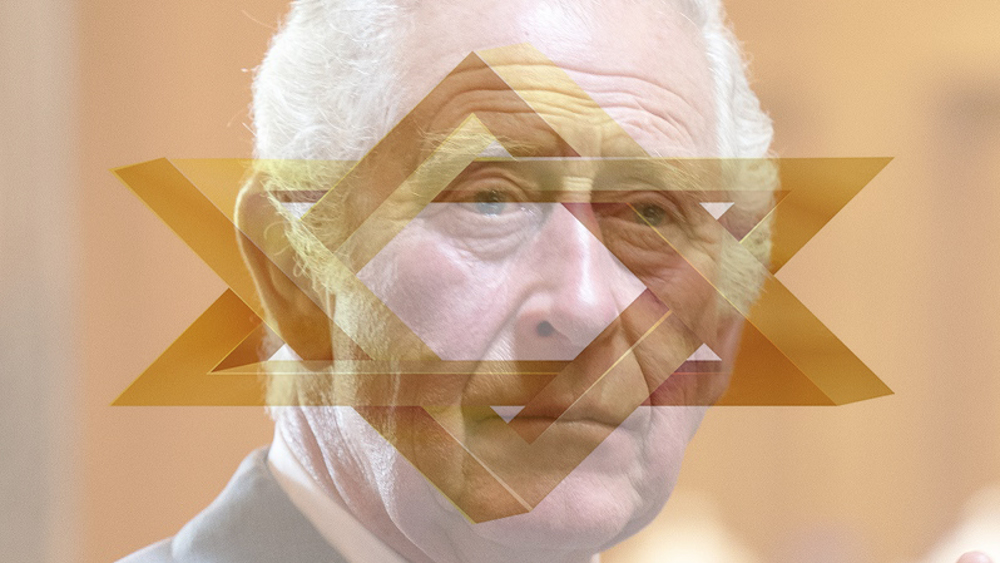


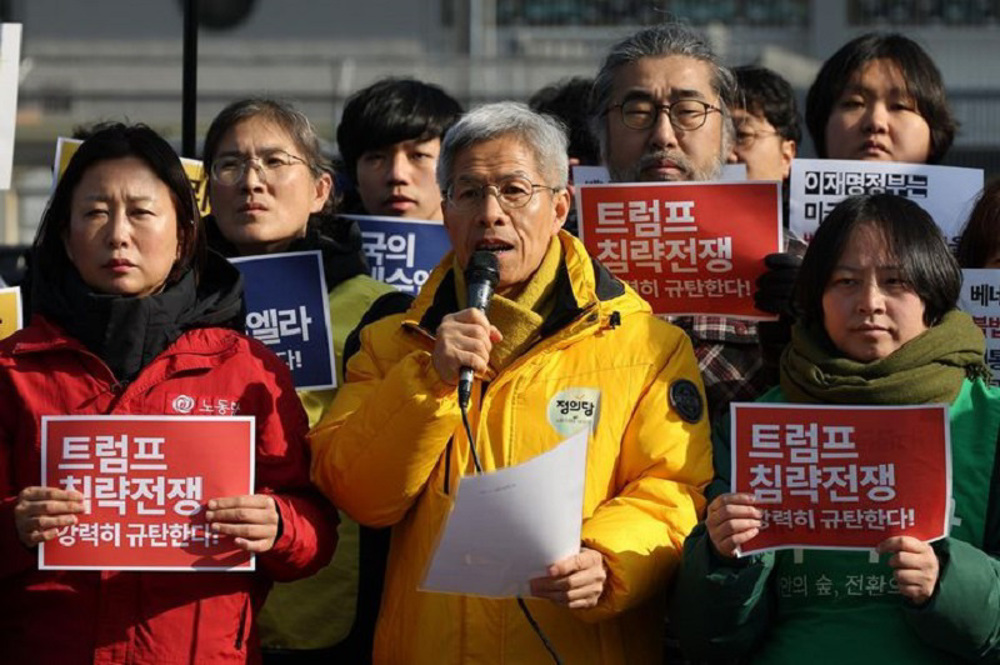











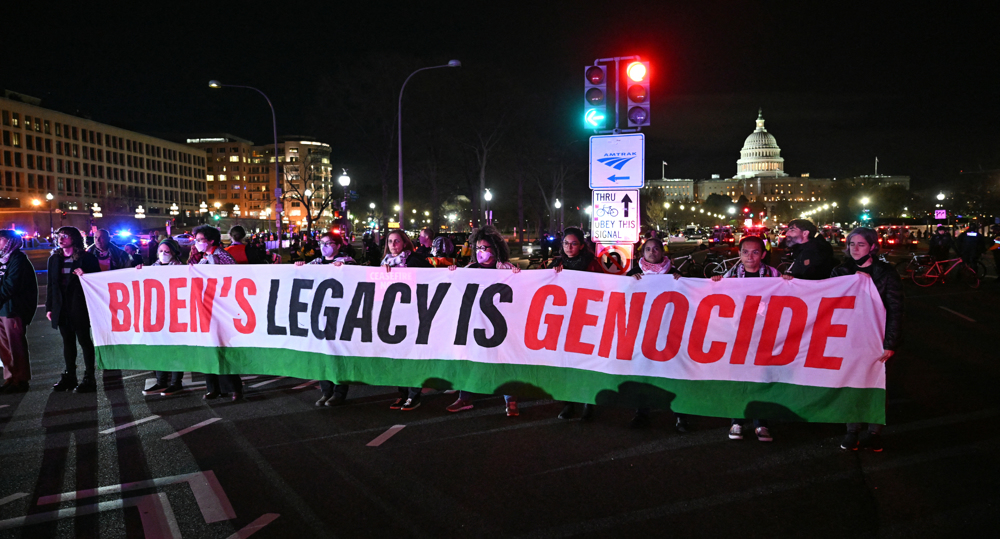


 This makes it easy to access the Press TV website
This makes it easy to access the Press TV website